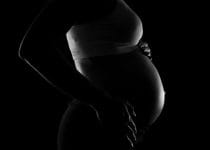Pregnancy: A Comprehensive Guide For Expectant Parents
Pregnancy is an extraordinary journey, filled with both joy and challenges. For expectant parents, it's essential to have a comprehensive understanding of this transformative experience. This blog post aims to provide parents with a comprehensive guide to pregnancy, addressing common questions, concerns, and essential information to navigate this period with confidence.
**The Trimesters of Pregnancy**
Pregnancy is typically divided into three trimesters, each with its unique set of milestones and changes.
* **First Trimester (Weeks 1-12):** This is the period of initial development, characterized by rapid cell division and organ formation. Early pregnancy symptoms may include nausea, fatigue, and breast tenderness.
* **Second Trimester (Weeks 13-27):** The fetus grows significantly during this time, and the mother's body undergoes changes to accommodate the growing baby. Symptoms may include increased energy, a growing belly, and fetal movements.
* **Third Trimester (Weeks 28-40):** The final trimester prepares the body for labor and delivery. The fetus continues to develop rapidly, and the mother may experience increased weight gain, swelling, and back pain.
**Prenatal Care and Nutrition**
Regular prenatal checkups are crucial for monitoring the health of both the mother and baby. These visits involve physical exams, blood tests, and ultrasounds to track the baby's development and address any potential concerns.
Adequate nutrition is essential during pregnancy. A balanced diet rich in fruits, vegetables, whole grains, and lean protein provides the nutrients necessary for the baby's growth and development. Limiting processed foods, unhealthy fats, and excessive caffeine intake is also recommended.
**Labor and Delivery**
Labor is the process of giving birth to the baby. It typically involves three stages:
* **Early Labor:** This stage begins with mild, irregular contractions that gradually become stronger and more frequent.
* **Active Labor:** Contractions become more intense and closer together. This stage culminates in the birth of the baby.
* **Delivery of the Placenta:** After the birth of the baby, the placenta, which has provided nourishment throughout pregnancy, is also delivered.
**Postpartum Recovery and Care**
After delivery, the body undergoes a recovery period known as the postpartum period. This period can last for several weeks or months and involves physical and emotional adjustments. Common postpartum symptoms include fatigue, vaginal bleeding, and breast milk production. Seeking support from healthcare professionals, family, or a support group can help during this transition.
**Conclusion**
Pregnancy is a transformative journey that can be both exciting and challenging. By understanding the milestones, changes, and essential care during each trimester, expectant parents can navigate this period with confidence. Regular prenatal checkups, a balanced diet, and emotional support are crucial for ensuring the well-being of both the mother and baby.


